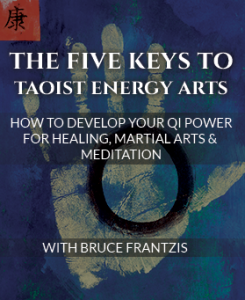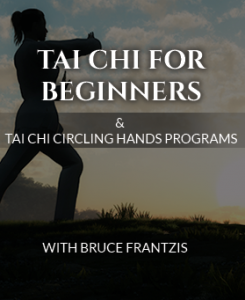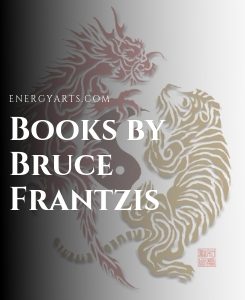This weekend was the supermoon, the one time of the year when a full moon coincides with its perigee, the closest point to Earth in its orbit.
On Sunday I was on a call with Alan Peatfield in Ireland discussing a future project I was planning on Lao Tse’s “Tao Te Ching,” and talking about how our kids were doing. Then he told me he’d heard that my Chen style tai chi teacher in Beijing, Feng Zhi Qiang, had just passed away the previous day, on Saturday May 5th. I felt as if I’d just been punched in the stomach.
After the phone call I lay in bed unable to sleep for several hours. This news put a hole in my life and I felt overwhelming sadness. I had great personal affection for Feng, something considerably more than the ordinary bond between teacher and student. After the last time we met at his home this past December in Beijing, the hope was that I could go back to China and study with him for a few months.
The supermoon peaked on Saturday May 5th more or less at the time Feng died. According to the Taoists, during a supermoon is a particularly auspicious time to pass on that bodes well for the future of his spirit. I have heard it called “the Great Yin Sendoff.”
The next day I called Beijing and spoke to Feng’s daughter, Feng Xiu Fang. I really didn’t know what to say to fully convey my feelings. I asked if there was anything I could do to help and told her I could come back to Beijing for Feng’s funeral on May 11. She said it was not necessary as it would be too much trouble for me. I asked Feng Xiu Fang if she was overwhelmed with arrangements, and if it would be better for her not to have another burden to deal with. She agreed and we left it that we’d talk again in a month after the dust had cleared. When possible, sooner than later I hope, I would like to pay a visit to Feng’s grave and give my condolences personally to the family.
A Legend in China and the World
Feng until a few days ago was generally considered the best living Chen style tai chi master in China, a living legend, official head of all tai chi in China and clearly one of the best of the best.
His death marks the end of an era. He was one of the last connections to the greats of tai chi who were the most direct and complete inheritors of the most important and public tai chi lineages of the 20th century. The other members of this elite club included for the Yang style, Yang Shou Zhong and Fu Zhong Wen; and for the Wu style, Ma Yue Liang.
In early 1986 Feng wanted to make me a formal disciple with a banquet – the tradition is to hold a large gathering to mark the occasion. However, I couldn’t do this as at that time I was Liu Hung Chieh’s formal disciple. Although Liu was fine with me studying with Feng Zhi Qiang, the unwritten rules of Beijing’s martial arts world is that you can’t ride two horses at the same time and therefore becoming Feng’s disciple didn’t happen. After Liu died at the end of 1986, although I wanted to accept the formal offer and study full time with Feng to complete my Chen style tai chi education, I couldn’t for reasons beyond my control, including being able to have my oldest son born and raised in the West.
In 1998 studying near Feng’s home for about a month, I learned Hun Yuan Qigong with him privately. The last time I saw him was in December 2011. I published a blog about that meeting on April 26 and Grandmaster Feng died just a week later on May 5th.
My First Meeting with Feng
I first met Feng in the summer of 1981 during my first trip to Beijing. While studying Yang style tai chi with Men Hui Feng at the Beijing College of Physical Education, I constantly mentioned that I would like to meet Master Feng who was quite well known for both his push hands and the inner workings of Chen style tai chi. At that time Feng worked in a factory and it was very difficult to have his bosses agree for him to see a foreigner. So for several weeks I was only told wait…. maybe.
During that time, since I was also a qigong tui na doctor having been trained in Taiwan and Hong Kong, part of my ongoing research was investigating and meeting whatever experts in that field I could. One day I was told there was another a qigong tui na doctor for me to meet. He was going to check me out relative to my possibilities of having a body capable of learning the deeper energetic material in internal martial arts.
I was introduced to a guy dressed in whites with the strange looking white hat many doctors wore in those days, which seemed like something a baker should have been wearing. This doctor gave me a bodywork session that lasted about an hour and a half. He was doing a serious checkup on me.
When the session was complete, we started talking about what he found as he worked on me and then we began talking about tai chi. I casually mentioned that I wanted to have a meeting with Feng. Then with this huge trademark smiling grin on his face the doctor says, “Oh, I am Feng Zhi Qiang.”
I was floored and asked if I could study with him as soon as possible. He said that working at his factory at this time made that politically impossible. However my body passed the test and the next time I was in China if possible we would get together, which we did. China in those days was very heavily politically constrained and Feng had to be cleared by higher ups to have contact with a foreigner – especially in relation to tai chi. He was not always free to do as he wanted. In the sense of freedom of social intercourse, times in China today have significantly changed for the better.
My Personal Experience of Feng Zhi Qiang
Feng was a conservative, straight up, old fashioned, salt-of-the-earth Beijing type without nonsense or tricks. He was very open, friendly and generous of spirit, nevertheless he was also able to deal with the political weirdness of official governmental martial arts politics, which was not a mean feat in Communist China. I felt a strong connection with Feng based on deep respect and great personal affection.
He genuinely considered what we would call morality to be very important, something quite rare in the Communist society in which he lived where what one said and what one actually did were commonly disconnected.
He was especially big on martial arts morality that in Chinese is called “Wu De.”
Feng never seemed to be that much concerned about material goods. Morality and having a bright spirit were dramatically more important to him. His original apartment was tiny with very little in it, even in 1998 when he had the financial ability for it to be otherwise.
In 2011 he had moved into a new, larger and more comfortable apartment. I am glad that by the end of his life he became well recognized in the tai chi world outside China and was able to have a bit more financial prosperity. He deserved it. He also was a good father, if one can judge that by the quality of his children. His daughter, Feng Xiu Fang, is charming and gracious.
My experience was that Feng was both a skilled tai chi master practitioner and a great teacher, two qualities that don’t always combine in the same individual. As a practitioner, his push hands were in the first class category. His mastery of chan sz jin (reeling silk power) was exceptional. Feng demonstrated this clearly even when he was severely ill at age 84. This was when I last saw him in December 2011. Unquestionably, he still “had it.” He was one of China’s top tai chi pros.
As a teacher, Feng and I had what the Chinese call “yuan fen” or what you could say was a powerful innate or karmic connection. As such he never had to show me something twice for me to reasonably recreate it, if not immediately at least shortly afterwards. Personally or with others as I saw, if you asked the right question Feng was exceptionally technically precise regarding not just the answer to the specific question asked but also to the unspoken series of interconnected issues associated with it.
Feng was a primary source of knowledge about Chen style tai chi in China, who loved chan sz jin. He made crystal clear the difference between the pulling (for which the Yang and Wu styles of tai chi are especially known) and the reeling of silk for which Chen style tai chi is more recognized.
All my gratitude goes to Grandmaster Feng Zhi Qiang. I am quite sure the whole world of tai chi will be diminished by his passing.
In fondest memory,
Bruce





Those who met him and studied with him can be very grateful.
Aliza
Dear Master Bruce:
I am very sorry to hear of the passing of your teacher Grandmaster Feng.
Thank you very much for all you did for me as my teacher from years past.
Your help was greatly appreciated!
The martial arts world morns with you at the passing of this great teacher.
As you said Bruce the moon provided such a grand send off!
All the best to all concerned friends and family.
Sorry to hear about the passing of your teacher and friend. Deepest condolences to youself and grandmaster Feng’s family. Your work is a credit to him and your other teachers and you are carrying on this great tradition.
Hello, I have studied with one of Feng’s students, Zhang Xue Xin and have practiced the system for almost 20 years. Something really strange happened. You had posted that last article about Feng awhile back and I had his webpage up for over a week studying it. When I finally went back to complete the registration for online training, the site had gone down. Instead of the content that was on there before, there was just Feng’s picture and an endless sea of chrysanthemums. I felt that I had been there to witness his passing and can still feel his presence. Grandmaster Feng did something really special to an already powerful system. It is fortunate we have people such as you to continue the lineage.
I felt the energy shift on May 5th and mentioned it to another peer of mine who has studied. Great masters leaving this world, another great loss. Remember the TV legend Master Po who was a great loss to the world on May 5th as he travled to the festival- I am sure he is someone and I think of them – he and Mr. Feng laughing together in Heaven. Perhaps they all feast with the LoHan Buddhists…or drift in peaceful form in the Misty Mountains.
I read Master Bruce’s book and from there, learned about Grandmaster Feng. And so here I am, on this blog and the internet, to read more about Grandmaster Feng.
I am 54 with arthrities on both knees, the left being worse, so I am unable to do a deep bow stance. A slight bow stance is okie though.
Sad that I cannot learn Chen style taichi because of this, but I do watch practitioners performing it live and on Youtube, much like a cat in a cage looking at a fish outside, that it cannot reach.
I read with affection and awe. In my own way I sincerely connect with this article. The same year as Master Feng Zhi Qiang passed, we in the north of England were losing a great exponent of Tai-Chi, also Chen style. Lee Davies-Conchie to a rare form of leukaemia. He was dedicated beyond compare to Chen Taichi, decent and fair, even right up until the end, a power house of spirit and unwavering devotion to his family and the Traditional Chinese arts. He had a sharp eye for technical detail, tactical precision and was traditional in both style and movement. I remember the blow to the stomach moment after finding out about his illness, I could have imagined moments before knowing him for my own entire life span. I always smiled while attending a thought of him, I was completely winded.
He was a remarkable role model to folk around the fylde coast. Me being in my mid twenties, without a strong sense of identity and direction got real insight into true decencies born of dedication to a martial artist’s path. When I went to his class on a typical windy morning in fleet wood, I became instantly wowed by the sturdiness and steadfast attitude towards his group, classes and life in general. Patience through the roof and a palatable expression that commanded focus and the entire extent of my focus as well. The additional interest he paid in me and my story after my first session that morning, went a very long way. (The last 8 years of my life have been packed with ever more qigong and associated practices, considering I live as a house holder and not a cave dweller, I have hardly wavered).
It was plain to see Lee lived for the greater good and whole heartedly looked for the best in people. At the time we met in 2008 I was doing several hours of qigong per day, could have been 7 or 8 easy, it was evident Lee practiced what he preached, eye to eye, you could just feel it. But then it was obvious anyway, asking anyone local, he was just about as decent as a character could possibly be. And some…
I find this article as I am in this moment thinking about learning Cheng Man Chings Yang Style 37. I always vowed that I would finish learning the Chen form before moving on. With another teacher but Lee though, it just doesn’t feel the same. Reading this article kind of helped get things into perspective. Sometimes things just go the way they go. It’s time to say hayho and continue development in the way the universe deems natural now.
Lee Davies smiled after his students towards consistent practice, and like Master Feng he was a massive advocate of silk reeling. After reading the words you written Bruce Frantzis I think I will apply myself to the task of learning silk reeling as well as I can.
For myself, to share with others but ultimately to honour the brief, yet profoundly life defining moments shared with Lee Davies-Conchie. Tai-Chi Lee.